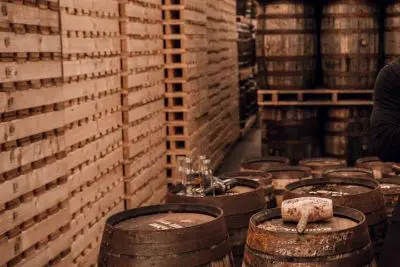
Is there capital gains tax on whisk(e)y?
Every country has different laws when it comes to profiting on whiskey casks and the resulting capital gains tax. In the UK for example, it is possible that profits made on casks are exempt from capital gains tax as they could be considered a wasting asset. A wasting asset is defined ‘as any asset which has a predictable life which does not exceed 50 years,’ according to the HM Revenue & Customs (HMRC) Internal Capital Gains Manual. For a cask of whiskey to be considered a wasting asset, it must have a predictable life of 50 years or less. Additionally, the asset must be expected to physically deteriorate over time and can’t be used for any purpose other than the maturation of the whiskey. If these conditions are met, then the cask of whiskey would be exempt from capital gains tax.
Why is whiskey classed as a wasting asset?
Whilst maturing, an range of 0.5 to 1.5% of the spirit inside the casks evaporates each year as part of the ‘Angels’ Share.’ Therefore, the typical lifespan of a cask is well under 50 years old, and the amount of whiskey left in the cask when you come to sell will depend on the duration of your term. These losses do not affect the value of your casks; the liquid is still increasing in rarity, and the evaporation is incredibly minimal. Insurance wise, with Whiskey & Wealth Club, casks are insured for the full value of the initial purchase, including yearly assessments and adjustments in line with the overall increases in the value as the cask ages.
Are there any taxes payable on whiskey?
Whiskey casks are stored in a bonded warehouse for the duration of the investment. A bonded warehouse is a secure storage facility with government licence to hold goods tax-free until they are shipped out. This allows the warehouse keepers and managers to move goods between sites without incurring fees for each transfer. Instead, any applicable duties and taxes are deferred until the goods leave the warehouse for their final sale. Therefore, if you were to sell your cask in bond, there would be no taxes payable on the whiskey. However, if you chose to bottle your whiskey, once the cask leaves the warehouse, any applicable taxes and duties would be imposed, such as VAT and income tax.
Nevertheless, as with any asset, it’s recommended to seek advice from a tax professional to fully understand the tax implications within your specific jurisdiction. Whiskey and Wealth Club has an incredibly strong compliance team to guide you through all potential liabilities, and proven strategies to navigate them with ease.

